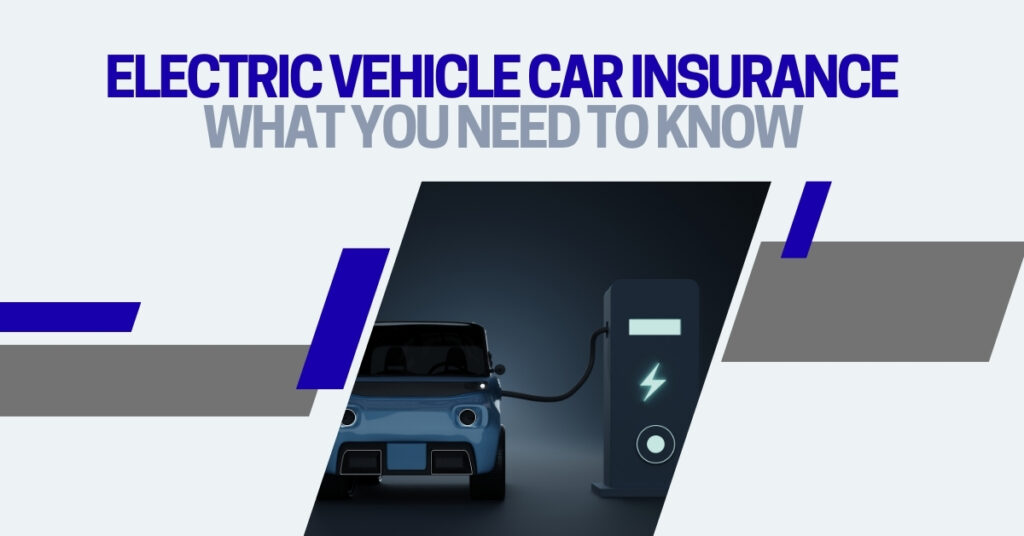Electric Vehicle Car Insurance
As the popularity of electric vehicles (EVs) continues to rise, so does the demand for insurance tailored specifically to these eco-friendly cars. Electric vehicle car insurance is a topic that is gaining increasing attention, especially as more drivers make the switch to electric cars. In fact, 2025 is expected to see even greater growth in EV adoption across the United States. Understanding how electric vehicle car insurance works, the differences between traditional car insurance, and why it costs more to insure these vehicles is critical for any current or future electric car owner.
Unlike traditional cars, electric vehicles require specialized coverage that accounts for the unique risks associated with their high-tech components and expensive parts, such as the battery. In this guide, we will break down everything you need to know about electric vehicle car insurance, helping you make informed decisions about your coverage, rates, and protection.
How Electric Vehicle Car Insurance Works
Electric vehicle (EV) car insurance works in much the same way as traditional car insurance. However, because EVs have different components, manufacturers, and repair costs, the premiums and coverage needs differ. Below are key points on how electric vehicle insurance works:
- Coverage Options: Just like with traditional cars, you can choose from various types of coverage, including liability, collision, comprehensive, personal injury protection (PIP), and uninsured/underinsured motorist coverage.
- Premiums: EV insurance premiums can vary significantly based on the make and model of the vehicle, the level of coverage you choose, and your driving history. Premiums tend to be higher for electric cars due to the high cost of repairs, parts, and labor.
- Battery Protection: A major component of EV insurance is coverage for the battery. The battery is one of the most expensive parts of an electric car, and a damaged or depleted battery can cost thousands of dollars to replace.
- Manufacturer Specific Coverage: Some electric vehicle manufacturers, like Tesla, offer their own insurance options with specialized coverage designed to protect their electric cars and batteries.
Overall, electric vehicle car insurance offers similar types of coverage to traditional car insurance but comes with a few added considerations due to the unique features of EVs.
Why You Need Specialized Insurance for Electric Cars
Insuring an electric vehicle isn’t just about meeting the state’s minimum insurance requirements. There are several reasons why specialized insurance is crucial for electric cars:
- Higher Repair Costs: EVs often require specialized repair services and parts that are more expensive than traditional gas-powered cars. Insurance for electric vehicles ensures you’re covered in case of a breakdown or accident.
- Battery Replacement: The battery is the heart of an electric car and can be very expensive to replace. Many EV owners opt for coverage that specifically addresses battery damage or failure.
- Advanced Technology: Electric vehicles come equipped with advanced tech features, such as autopilot, sensors, and digital controls, all of which may require specialized coverage.
- Electric Vehicle-Specific Discounts: Some insurance companies offer discounts for driving electric vehicles due to their eco-friendly nature. Specialized insurance plans often factor these into your premiums.
Having specialized EV insurance ensures that your vehicle is adequately covered in the event of an accident, theft, or damage to its electric-specific components, saving you money in the long run.

Why Do Electric Cars Cost More to Insure?
Electric cars typically cost more to insure compared to traditional gasoline-powered vehicles. Here’s why:
- Higher Vehicle Cost: The upfront cost of electric vehicles is generally higher than traditional cars. This means that in the event of an accident, the repair or replacement costs are more expensive, leading to higher insurance premiums.
- Expensive Parts and Repair: Components such as the battery, electric motor, and advanced technology in electric vehicles are often costly to repair or replace. As a result, insurance companies factor in these higher repair costs when determining premiums.
- Limited Availability of Parts and Service: EV parts and repair services may not be as widely available as those for conventional cars. This can lead to longer repair times and higher labor costs, which are passed on to consumers in the form of higher insurance rates.
- Inexperienced Drivers: Many electric vehicle drivers are first-time EV owners. Some insurers charge higher premiums for these drivers because of perceived higher risks or unfamiliarity with the vehicle.
While EVs can cost more to insure, the long-term benefits of lower fuel costs, fewer mechanical issues, and fewer visits to the gas station can offset these higher premiums.
Types of Coverage for Electric Vehicle Insurance
When it comes to electric vehicle car insurance, you can choose from a variety of coverage options, some of which are more relevant to electric cars than others. Here are the primary types of coverage available for electric vehicles:
1. Liability Coverage
- Bodily Injury Liability: Covers medical expenses for anyone injured in an accident you cause.
- Property Damage Liability: Pays for the cost of repairing or replacing property (including other vehicles) that you damage in an accident.
2. Comprehensive Coverage
- Protects against non-collision damage, such as theft, vandalism, or natural disasters.
- Given the high value of electric car batteries, comprehensive coverage is a must for EV owners.
3. Collision Coverage
- Covers damage to your own car in the event of a collision, regardless of who is at fault.
- For electric cars, this includes expensive parts like the battery and electric motor.
4. Uninsured/Underinsured Motorist Coverage
- Protects you if you’re in an accident with someone who either doesn’t have insurance or doesn’t have enough coverage to pay for your damages.
5. EV-Specific Coverage
- Some insurance providers offer specific policies for electric vehicles, including coverage for the battery, electric motor, and charging equipment.
6. Personal Injury Protection (PIP)
- Pays for medical expenses for you and your passengers, no matter who is at fault in the accident.
Electric Vehicle Insurance vs. Traditional Car Insurance
While both electric and traditional cars are insured under the same basic principles, there are key differences in their coverage needs:
| Feature | Electric Vehicle Insurance | Traditional Car Insurance |
| Repair Costs | Higher due to specialized parts | Generally lower repair costs |
| Battery Coverage | Crucial for EV owners | Not applicable |
| Cost of Insurance | Typically higher premiums | Usually lower premiums |
| Advanced Technology | Coverage for unique tech features | Standard coverage for basic features |
| Eco-Friendly Discounts | Available from some insurers | Not usually offered |
Electric vehicle insurance tends to be more expensive due to the higher cost of repairs, parts, and specialized coverage for components like the battery and electric motor.
Key Factors That Impact Electric Vehicle Insurance Rates
Several factors determine the cost of insuring an electric vehicle. The following are some of the key elements that impact your insurance premiums:
- Vehicle Make and Model: Luxury EVs (such as Tesla) or vehicles with specialized technology will generally have higher premiums.
- Battery Size and Replacement Costs: The size of the vehicle’s battery and its cost of replacement can significantly affect your premiums.
- Driving History: A clean driving record can help lower your premiums, even for electric vehicles.
- Location: Your location (i.e., urban vs. rural) can affect premiums. Areas with higher traffic or accident rates may lead to higher insurance costs.
Insurance Requirements for Electric Vehicles by State
Insurance requirements for electric vehicles are the same as those for traditional vehicles in most states. However, there are some considerations unique to electric vehicles:
- State Minimums: Some states have stricter minimum insurance requirements, particularly for electric cars with higher value.
- EV-Specific Requirements: States like California encourage eco-friendly policies and may offer discounts for electric car insurance.
Always check your state’s requirements to ensure you’re meeting the minimum legal coverage for your EV.
Insurance Coverage for EV Battery Damage
Because the battery is one of the most expensive components of an electric vehicle, it’s crucial to have specific insurance coverage that protects it. Many standard auto insurance policies do not cover battery damage, so it’s important to opt for an EV-specific policy or add battery protection to your existing coverage. This can protect you in the event of:
- Battery malfunction
- Battery degradation over time
- Battery damage due to an accident
Do Insurance Companies Offer Discounts for Electric Vehicles?
Yes! Many insurance companies offer discounts for electric vehicle owners, including:
- Eco-Friendly Discounts: Some insurers offer discounts for driving an electric car due to the environmental benefits.
- Low Mileage Discounts: EVs are often used for shorter commutes, which can result in lower premiums.
- Safety Feature Discounts: Electric vehicles come with advanced safety features, such as automatic emergency braking, which can qualify you for discounts.
How to Choose the Right Insurance for Your Electric Vehicle
Choosing the right insurance for your electric vehicle involves considering your needs and evaluating several key factors:
- Coverage Needs: Ensure your policy covers your EV’s unique components, such as the battery and advanced technology.
- Shop Around: Compare quotes from different insurers to find the best deal.
- Discounts: Look for insurers that offer discounts for electric vehicles, safe driving, or bundling policies.
The Future of Electric Vehicle Insurance
As electric vehicle adoption increases, we can expect more specialized insurance policies to emerge, offering greater flexibility and more tailored coverage for EV owners. This includes more affordable premiums, increased availability of battery protection plans, and better claims processes specific to electric vehicles.
Benefits of Comprehensive Coverage for Electric Cars
Comprehensive coverage for electric cars protects you from a wide range of damages, from theft to natural disasters to accidents. Given the high repair and replacement costs associated with EVs, comprehensive coverage offers significant peace of mind.
Can You Add Custom Coverage for Your Electric Vehicle?
Yes, you can often add custom coverage to your electric vehicle policy. This might include additional protection for the battery, charging equipment, or specific types of damage not covered under standard policies.
How to File a Claim for Your Electric Vehicle
Filing a claim for your electric vehicle is similar to filing a claim for any other vehicle. Make sure to document the damage, contact your insurer promptly, and follow their guidelines for the claims process.
What Happens if Your Electric Vehicle Gets Damaged in an Accident?
If your EV is damaged in an accident, your insurance will cover repairs based on your policy’s coverage limits. If you have comprehensive or collision coverage, you’ll be reimbursed for the damage, including the cost of repairing the battery and other high-tech components.
FAQ
How does Electric Vehicle Car Insurance differ from regular car insurance?
Electric vehicle car insurance generally includes specialized coverage for the battery, motor, and other unique components of an EV, leading to higher premiums.
Does Electric Vehicle Car Insurance cover battery replacement?
Yes, many EV insurance policies offer battery replacement coverage, either as part of a standard policy or as an add-on.
Can I use my existing car insurance for an Electric Vehicle?
It’s not recommended. Electric vehicles have different coverage needs that require specialized insurance policies.
What are the best Electric Vehicle Car Insurance providers?
Popular insurers for EVs include Tesla Insurance, State Farm, Geico, and Progressive, which offer specialized coverage for electric vehicles.
Why is Electric Vehicle Car Insurance more expensive than regular car insurance?
EV insurance is more expensive due to the higher cost of parts, repairs, and specialized coverage for components like the battery.

